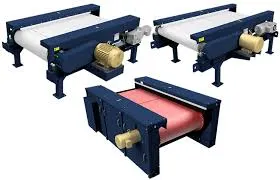

dec . 20, 2024 06:17 Back to list
How to Recycle PCB A Comprehensive Guide
Printed Circuit Boards (PCBs) are integral components of modern electronic devices, serving as the backbone for connecting various electronic parts. However, with rapid technological advancements and the corresponding increase in electronic waste (e-waste), the need for effective recycling methods has become imperative. Recycling PCBs not only conserves resources and reduces landfill waste, but it also minimizes the environmental impact that improper disposal can create.
Understanding PCBs and Their Components
PCBs are made up of several materials, including plastics, copper, gold, and other metals. The most common materials found in PCBs are
1. Fiberglass (FR4) The most widely used substrate material. 2. Copper Used to create conductive pathways. 3. Solders Often composed of lead or tin. 4. Precious Metals Gold, silver, and palladium, usually found in smaller quantities.
These components, especially the precious metals, make recycling an economically viable option.
Why Recycle PCBs?
1. Environmental Protection The improper disposal of PCBs can lead to soil, air, and water pollution. Heavy metals like lead and mercury can seep into the environment, causing significant harm. 2. Resource Recovery Recycling PCBs helps to recover valuable materials, which can be reused, reducing the need for mining new raw materials.
4. Regulatory Compliance Many countries have regulations in place regarding the disposal of e-waste. Recycling helps businesses comply with these laws.
Steps for Recycling PCBs
1. Collection The first step in recycling PCBs is effective collection. Consumers can drop off old electronics at designated e-waste recycling centers or return them to manufacturers who offer take-back programs.

2. Sorting and Dismantling At a recycling facility, the collected electronics are sorted. Components such as batteries, plastics, and metals are separated. PCBs are then dismantled from the other parts.
3. Shredding The dismantled PCBs are processed through shredders, breaking them down into smaller pieces. This makes it easier to separate different materials during further processing.
4. Separation of Materials After shredding, the PCB materials undergo various separation techniques to isolate metals from non-metals. Methods include
- Mechanical Separation Using air, water, or mechanical force to separate materials based on their density. - Chemical Treatment Using acids and other chemicals to extract metals from the PCB components.
5. Refining Metals Once separated, metals are refined to remove impurities. The pure metals can then be reused in the production of new electronic devices.
6. Disposal of Non-recyclable Materials Any materials that cannot be recycled need to be disposed of according to local regulations, ensuring that they do not contribute to environmental pollution.
DIY PCB Recycling
For those interested in recycling PCBs at home, some basic techniques can be employed. While industrial methods are more efficient, small-scale recycling can still yield valuable materials
- Chemical Stripping Using specific chemical solutions to remove copper from PCB surfaces. This method requires safety precautions to avoid harmful exposure. - Manual Component Recovery Carefully removing valuable components from PCBs, such as capacitors, resistors, and integrated circuits, which can be reused or sold.
Conclusion
Recycling PCBs is not just a necessity but a responsibility we all share. By understanding the importance and process of PCB recycling, individuals and businesses can contribute to a more sustainable future. As technology continues to evolve, embracing recycling practices can help mitigate the environmental impact associated with electronic waste. Always remember to recycle your old electronics properly and support companies that prioritize sustainable e-waste management. Together, we can create a cleaner, greener planet.
Latest news
Troubleshooting Common Eddy Separator Problems
NewsJul.04,2025
The Role of Metal Recycling Plants in Circular Economy
NewsJul.04,2025
The Impact of Recycling Line Pickers on Waste Management Costs
NewsJul.04,2025
Safety Features Every Metal Shredder Should Have
NewsJul.04,2025
How Industrial Shredders Improve Waste Management Systems
NewsJul.04,2025
How Cable Granulators Contribute to Sustainable Recycling
NewsJul.04,2025